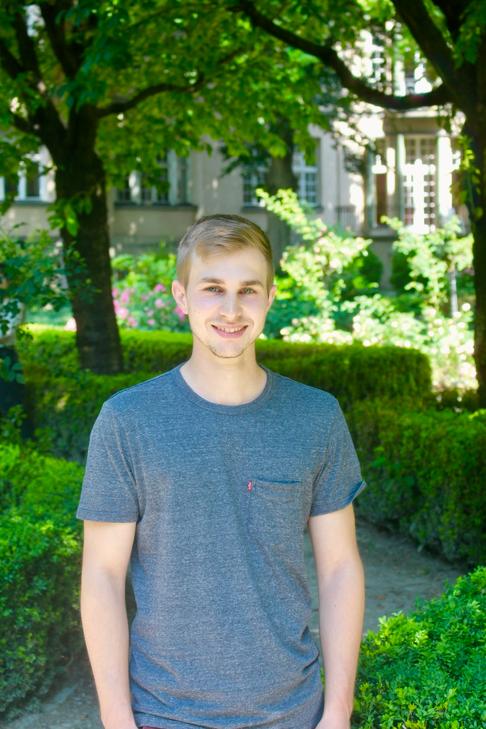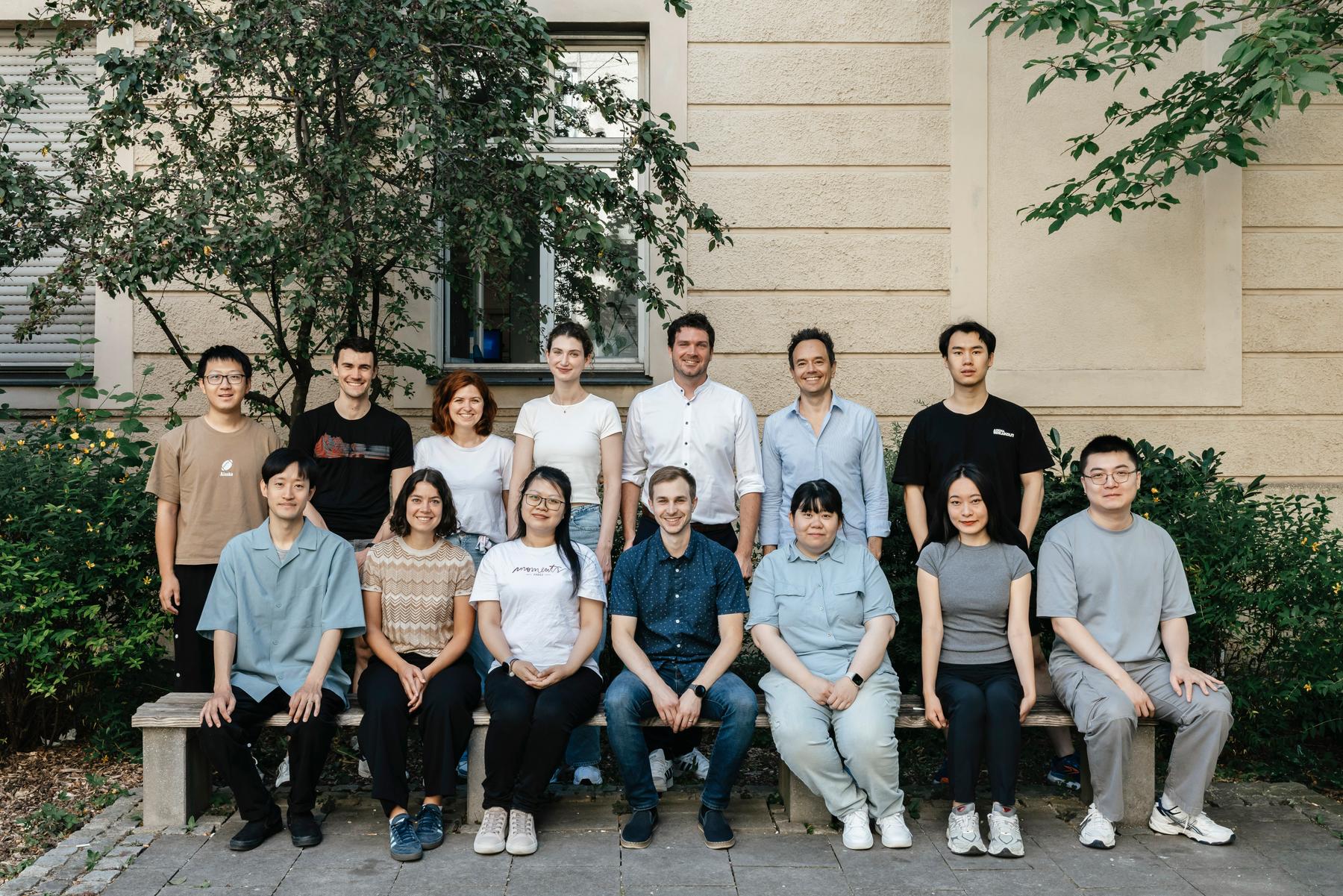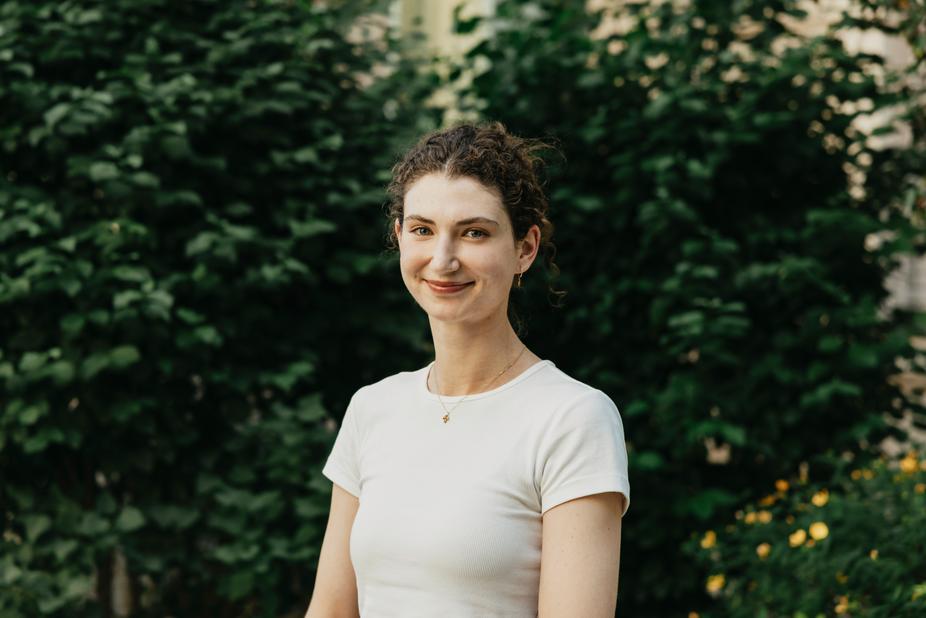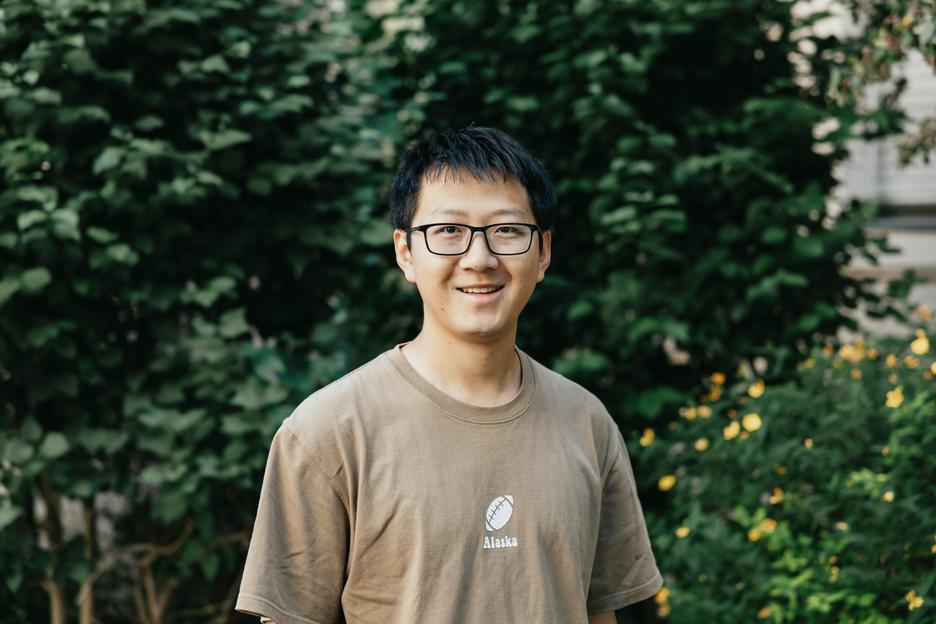Kotlarz Lab
Decoding disease signatures of Pediatric IBD - A system biology-driven approach
-

Research topics
- Genetic signatures in pediatric inflammatory bowel disease
- Transcriptional networks in pediatric inflammatory bowel disease
- Mucosal Immunology
Preclinical Models of inflammatory bowel disease
-
The mission of our research group is to explore the molecular causes in children with very early onset inflammatory bowel disease (VEO-IBD), a life-threatening condition. In particular, our laboratory focuses on decoding genetic and immune signatures of VEO-IBD by employing omics-based technologies and advanced preclinical models. We propose that our studies will lead to new insights into disease pathogenesis, diagnosis, and treatment for children with this intractable disease.
Background
Inflammatory bowel disease is a multifactorial disorder of the digestive tract triggered by environmental factors, immune dysfunctions, defective epithelial barrier function, and imbalances of the microbial flora in genetically susceptible individuals.
About 20% of patients with IBD are diagnosed during childhood and adolescents. Children with very early onset inflammatory bowel diseases (VEO-IBD, age of onset <6 years) often show severe and life-threatening conditions refractory to conventional treatment.
Paradigmatic studies by our laboratory have shown that VEO-IBD can be caused by monogenic IL-10R defects (Glocker et al, New Engl J Med 2009). Based on the knowledge of the underlying molecular etiology, IL-10R-deficient patients could be treated with allogeneic hematopoietic stem cell transplantation, an innovative therapeutic approach for defined patients with IBD (Kotlarz et al, Gastroenterology 2012). This prime example of translational research demonstrated the importance of genetic diagnostics for the clinical management of VEO-IBD patients and highlighted that rare variants of IBD represent exquisite models to identify key molecular factors controlling intestinal homeostasis.
The overall goal of our laboratory is to explore the molecular pathomechanisms of VEO-IBD in order to develop novel diagnostic tools and therapies for children with intractable colitis.
Unravelling genetic signatures of pediatric IBD
In collaboration with our partners in Boston (Dr. Scott Snapper) and Toronto (Dr. Aleixo Muise), we have established an international VEO-IBD consortium that will be supported by world experts in the field of immunology, genetics, genetic engineering, gastroenterology, intestinal stem cell biology, microbiomics and bioinformatics.
To elucidate novel genetic signatures of VEO-IBD, we have established collaborations to more than 150 international clinical institutes and systematically screened one of the largest international cohorts of VEO-IBD by employing state-of-the-art next-generation sequencing. As proof-of-principle, our laboratory has characterized first VEO-IBD patients with TGFB1 (Kotlarz et al., Nat Genet 2018), CASP8 (Lehle et al., Gastroenterology 2019), and RIPK1 (Li et al., PNAS 2019) deficiency. Our computational analysis has also unraveled several novel candidate genes that might be implicated in the pathogenesis of VEO-IBD.
We will analyze the molecular pathomechanisms of newly identified sequence variants by employing various experimental models (patient samples, heterologous model systems, mouse models) and state-of-the-art molecular and cell biological technologies.
Decoding transcriptional networks of pediatric IBD
Despite advances in genome-wide sequencing, >75 % of VEO-IBD patients lack definitive genetic diagnosis. In addition, the disease mechanisms of most known genetic entities of VEO-IBD remain largely elusive and need to be further defined in order to develop personalized therapies.
Intestinal inflammation is likely driven by alterations in tissue composition and cell-intrinsic cellular programs. In the past, transcriptomics studies have been hampered by analysis of bulk samples across entire tissues. We postulate that innovative single cell genomic analysis will allow comprehensive mapping of known and previously uncharacterized epithelial, stromal, and immune cell types as well as transcriptional disease states in complex intestinal tissues of VEO-IBD patients. Unbiased and multidimensional single cell transcriptomic data will facilitate the discovery of dysregulated inflammatory expression programs, thus providing critical insights into disease etiology and highlighting new therapeutic interventions.
Application of preclinical models of IBDTo dissect the molecular pathomechanisms of VEO-IBD, our laboratory has established an experimental platform to (i) conduct state-of-the-art assays on primary patients’ cells, (ii) patient-derived induced pluripotent stem cells and intestinal 3D mini guts (intestinal organoids), (iii) generate heterologous cellular models by genetic engineering (lentiviral gene transfer, CRISPR/Cas9), and (iv) analyze patient-derived humanized mouse models by cutting-edge cell biology, biochemical and immunological assays.


Humanized Mouse Models
Studies on primary patients’ cells are limited by access and knockout mouse models might have inherent limitations on extrapolating findings to human. Alternatively, humanized mice reconstituted with patient-derived cells are powerful tools for basic and applied human disease research.
Intestinal Organoids
Intestinal organoid cell lines represent a cutting-edge 3D “mini-gut“-system with in vivo phenotypical characteristics allowing sophisticated studies on genetics, epigenetics, proteomics, and cell biology in intestinal epithelial cells from children with VEO-IBD.
Development of personalized therapies
The overall goal of our research is to advance the understanding of key factors in IBD pathogenesis by employing omics-based technologies and preclinical disease models. This knowledge provides the groundwork for the development of personalized therapies in order to improve life quality for children suffering from life-threatening diseases.
-

Jonas Bibus Alina Hundt 
Natsuki Ito Yuhan Jia 
Marina Kreuzeder Jiahui Ma 
Xiang Shen 
Jorge Vincentelli 
Wing Yin Yeung 
Madleen Biggel 
David Illig 
Daniel Kotlarz 
Christopher Lance Christopher Lance, M.Sc.
Doctoral Researcher (PhD track)
Co-advised with Prof. Dr. Fabian Theis
✉ Christopher Lance, Room: K0.25

Mina Pellegrini 
Zeynep Ünal 
Benjamin Weinert Benjamin Weinert, M.Sc.
Doctoral Researcher (PhD track)
Co-supervised by Dr. C. Marr
Helmholtz Institute

Zhengyuan Xue Zhengyuan Xue, M.Sc.
Doctoral Researcher (PhD track)
Co-advised with Prof. Dr. Fabian Theis
Room: K0.25

Ziqi Yu -
Selected Publications
Valosin-containing protein-regulated endoplasmic reticulum stress causes NOD2-dependent inflammatory responses. Ghalandary M, Li Y, Fröhlich T, Magg T, Liu Y, Rohlfs M, Hollizeck S, Conca R, Schwerd T, Uhlig HH, Bufler P, Koletzko S, Muise AM, Snapper SB, Hauck F, Klein C, Kotlarz D (2022). Sci Rep 12, 3906.NOX1 Regulates Collective and Planktonic Cell Migration: Insights From Patients With Pediatric-Onset IBD and NOX1 Deficiency.
Khoshnevisan R, Anderson M, Babcock S, Anderson S, Illig D, Marquardt B, Sherkat R, Schröder K, Moll F, Hollizeck S, Rohlfs M, Walz C, Adibi P, Rezaei A, Andalib A, Koletzko S, Muise AM, Snapper SB, Klein C, Thiagarajah JR, Kotlarz D (2020). Inflamm Bowel Dis. 17.Dysregulation of Cell Death in Human Chronic Inflammation.
Li Y, Klein C, Kotzlarz D (2020). Cold Spring Harb Perspect Biol. 12.Human RIPK1 deficiency causes combined immunodeficiency and inflammatory bowel diseases.
Li Y, Fuhrer M, Bahrami E, Socha P, Klaudel-Dreszler M, Bouzidi A, Liu Y, Lehle AS, Magg T, Hollizeck S, Rohlfs M, Conca R, Field M, Warner N, Mordechai S, Shteyer E, Turner D, Boukari R, Belbouab R, Walz C, Gaidt MM, Hornung V, Baumann B, Pannicke U, Al Idrissi E, Ali Alghamdi H, Sepulveda FE, Gil M, de Saint Basile G, Honig M, Koletzko S, Muise AM, Snapper SB, Schwarz K, Klein C, and Kotlarz D (2019). Proc Natl Acad Sci U S A 116, 970-975.Intestinal Inflammation and Dysregulated Immunity in Patients With Inherited Caspase-8 Deficiency.
Lehle AS, Farin HF, Marquardt B, Michels BE, Magg T, Li Y, Liu Y, Ghalandary M, Lammens K, Hollizeck S, Rohlfs M, Hauck F, Conca R, Walz C, Weiss B, Lev A, Simon AJ, Gross O, Gaidt MM, Hornung V, Clevers H, Yazbeck N, Hanna-Wakim R, Shouval DS, Warner N, Somech R, Muise AM, Snapper SB, Bufler P, Koletzko S, Klein C, and Kotlarz D (2019). Gastroenterology 156, 275-278.Human TGF-beta1 deficiency causes severe inflammatory bowel disease and encephalopathy.
Kotlarz D, Marquardt B, Baroy T, Lee WS, Konnikova L, Hollizeck S, Magg T, Lehle AS, Walz C, Borggraefe I, Hauck F, Bufler P, Conca R, Wall SM, Schumacher EM, Misceo D, Frengen E, Bentsen BS, Uhlig HH, Hopfner KP, Muise AM, Snapper SB, Stromme P, and Klein C (2018). Nat Genet 50, 344-348.Loss-of-function mutations in the IL-21 receptor gene cause a primary immunodeficiency syndrome.
Kotlarz D, Zietara N, Uzel G, Weidemann T, Braun CJ, Diestelhorst J, Krawitz PM, Robinson PN, Hecht J, Puchalka J, Gertz EM, Schaffer AA, Lawrence MG, Kardava L, Pfeifer D, Baumann U, Pfister ED, Hanson EP, Schambach A, Jacobs R, Kreipe H, Moir S, Milner JD, Schwille P, Mundlos S, and Klein C (2013). J Exp Med 210, 433-443.Loss of interleukin-10 signaling and infantile inflammatory bowel disease: implications for diagnosis and therapy.
Kotlarz D, Beier R, Murugan D, Diestelhorst J, Jensen O, Boztug K, Pfeifer D, Kreipe H, Pfister ED, Baumann U, Puchalka J, Bohne J, Egritas O, Dalgic B, Kolho KL, Sauerbrey A, Buderus S, Gungor T, Enninger A, Koda YK, Guariso G, Weiss B, Corbacioglu S, Socha P, Uslu N, Metin A, Wahbeh GT, Husain K, Ramadan D, Al-Herz W, Grimbacher B, Sauer M, Sykora KW, Koletzko S, and Klein C (2012). Gastroenterology 143, 347-355.Inflammatory bowel disease and mutations affecting the interleukin-10 receptor.
Glocker EO, Kotlarz D, Boztug K, Gertz EM, Schaffer AA, Noyan F, Perro M, Diestelhorst J, Allroth A, Murugan D, Hatscher N, Pfeifer D, Sykora KW, Sauer M, Kreipe H, Lacher M, Nustede R, Woellner C, Baumann U, Salzer U, Koletzko S, Shah N, Segal AW, Sauerbrey A, Buderus S, Snapper SB, Grimbacher B, and Klein C (2009). N Engl J Med 361, 2033-2045.Please refer to the complete list of published work in my bibliography.
-
We are looking constantly for motivated individuals to join our research group
- undergraduate students (Bachelor / Master),
- doctoral researchers
- especially in the fields: Life Science and Bioinformatics
If you are interested, please send your application (incl. CV, motivation letter and references) per e-mail to Daniel Kotlarz.
-
Impressions
Lab Retreat in Regensburg


Social media
NewsNews // March 2020
News // May 2021
-

-
Kotlarz Lab
Kinderklinik und Kinderpoliklinik im Dr. von Haunerschen Kinderspital,
Klinikum der Universität München, LMU München
Postal Address:
Lindwurmstr. 4
D-80337 Munich
Germany
Phone: +49 89 4400 57985
Shipment of patient samples (please contact via Email prior to shipment):
Dr. von Haunerschen Kinderspital
Forschungszentrum KUBUS
AG Klein
Lindwurmstr. 2a
D-80337 Munich
Germany
Phone: +49 (0)89 - 4400 - 57985



